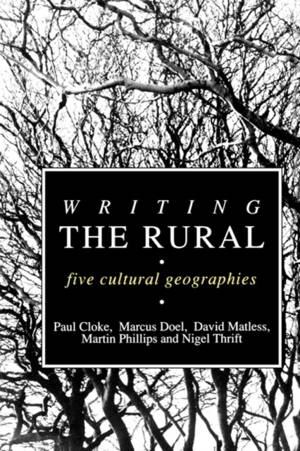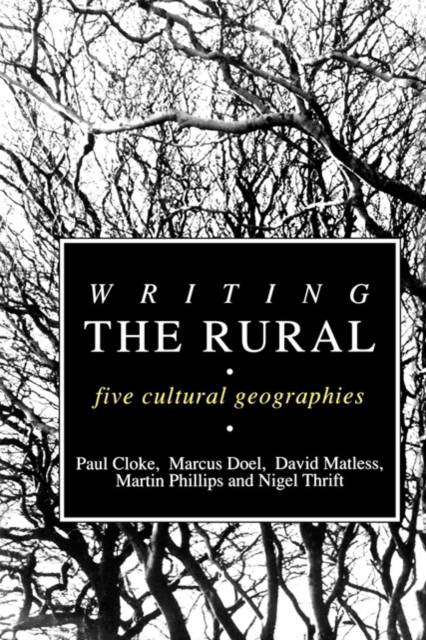
- Afhalen na 1 uur in een winkel met voorraad
- Gratis thuislevering in België vanaf € 30
- Ruim aanbod met 7 miljoen producten
- Afhalen na 1 uur in een winkel met voorraad
- Gratis thuislevering in België vanaf € 30
- Ruim aanbod met 7 miljoen producten
Zoeken
Writing the Rural
Five Cultural Geographies
Paul J Cloke, Marcus A Doel, David Matless, Nigel Thrift, Martin Phillips
Paperback | Engels
€ 128,45
+ 256 punten
Omschrijving
This book arises out of an ESRC project devoted to an examination of the economic, social and cultural impacts of the ′service class′ on rural areas. The research was an attempt to document these impacts through close empirical work in a set of three rural communities, but something happened on the way. The authors found that the ′rural′ became a real sticking point. Respondents used it in different ways - as a bludgeon, as a badge, as a barometer - to signify many different things - security, identity, community, domesticity, gender, sexuality, ethnicity - nearly always by drawing on many different sources - the media, the landscape, friends and kin, animals. It became abundantly clear that the ′rural′, whatever chameleon form it took, was a prime and deeply felt determinant of the actions of many respondents. Yet it was also clear that to the authors they possessed no theoretical framework that could allow them to negotiate the ′rural′ to deconstruct its diverse nature as a category. Rather each of the extended essays in the book is an attempt by each author to draw out one aspect of the ′rural′ by drawing on different traditions in social and cultural theory.
Specificaties
Betrokkenen
- Auteur(s):
- Uitgeverij:
Inhoud
- Aantal bladzijden:
- 264
- Taal:
- Engels
Eigenschappen
- Productcode (EAN):
- 9781853961977
- Verschijningsdatum:
- 28/07/1994
- Uitvoering:
- Paperback
- Formaat:
- Trade paperback (VS)
- Afmetingen:
- 155 mm x 233 mm
- Gewicht:
- 399 g

Alleen bij Standaard Boekhandel
+ 256 punten op je klantenkaart van Standaard Boekhandel
Beoordelingen
We publiceren alleen reviews die voldoen aan de voorwaarden voor reviews. Bekijk onze voorwaarden voor reviews.











